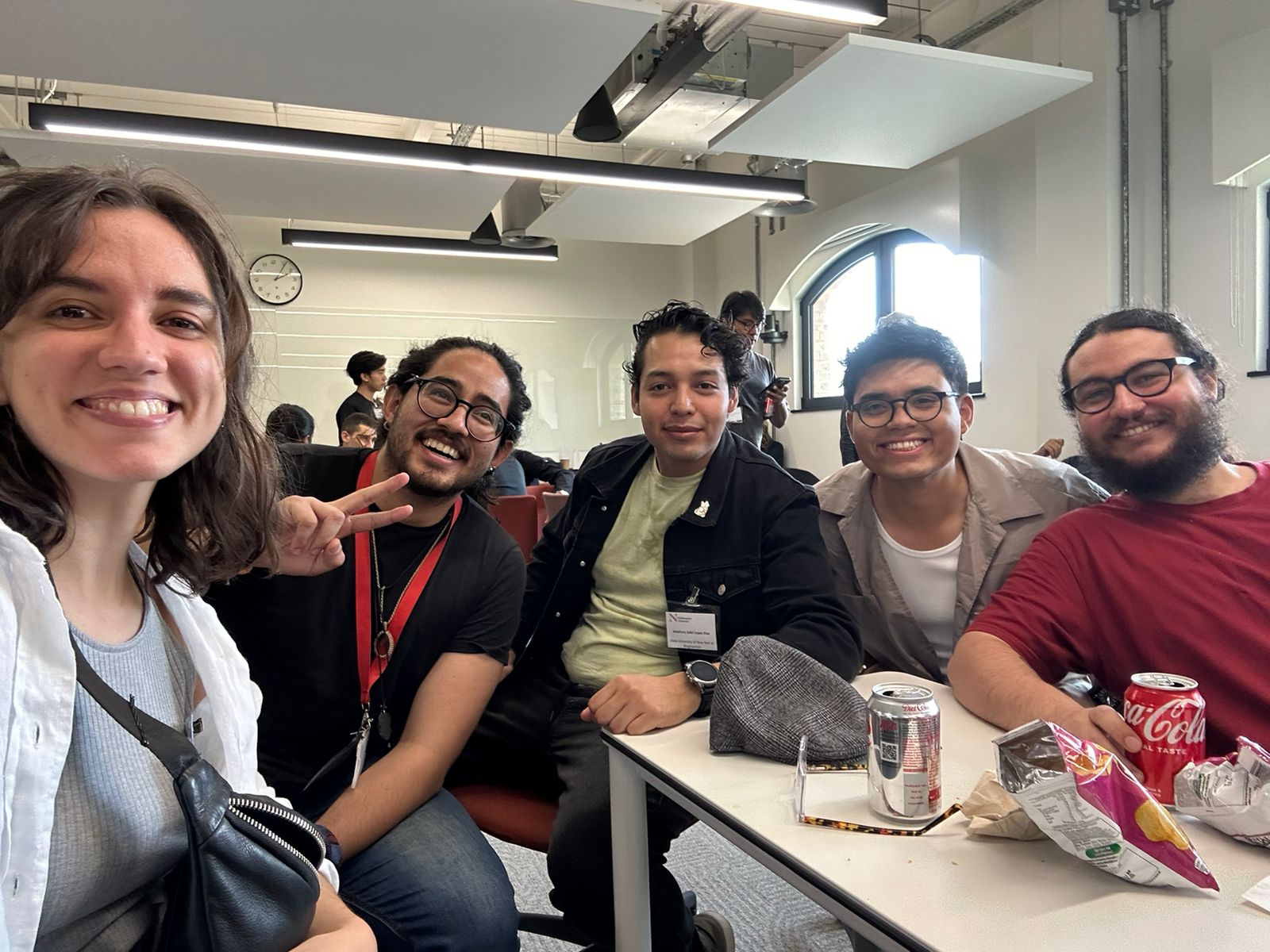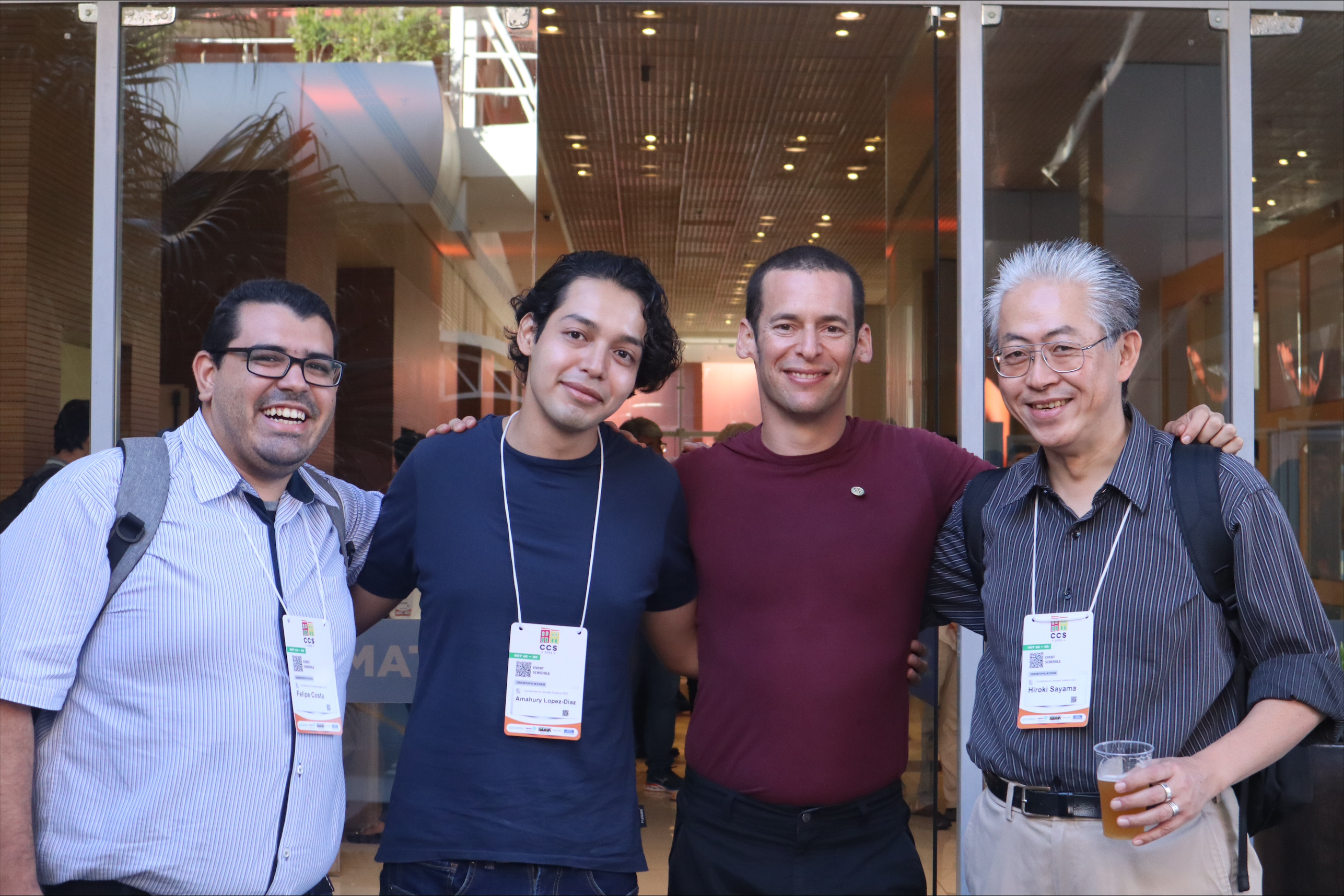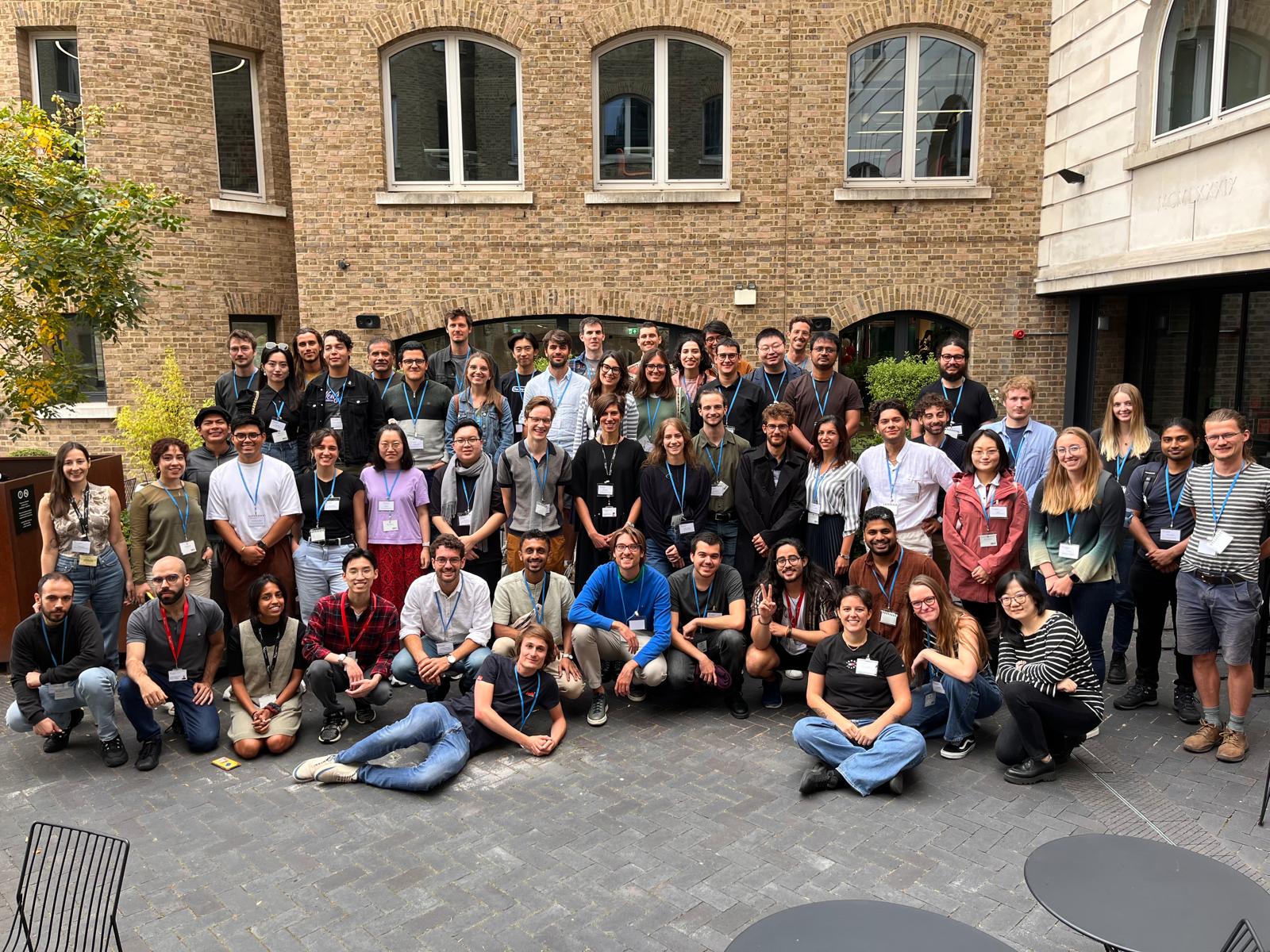Complexity Cat Review on CCS 2024
By attending the Conference on Complex Systems twice in a row, I can now better contrast how the world of complex systems has evolved in the last year.
Last year I attended the Conference on Complex Systems (CCS), which was held in Brazil. A month ago I had the opportunity to travel to the UK to attend the same event, and after two consecutive years, I could notice some changes in this regard.
Perhaps the most counter-intuitive thing for me was to find a large number of Latinos in the Old Continent. Excluding the large number of Brazilians last year, I don’t recall seeing so many people from neighboring countries like Colombia, Chile, Argentina, and other parts of Latin America in general. To my great surprise the number of young Latin Americans attending CCS 2024 was not negligible. In fact, in my opinion, this year the Latin audience was much more abundant and diverse than in Brazil (again, excluding Brazilian locals). Don’t get me wrong, meeting Latinos at international conferences always makes me happy, because being Mexican I feel that the connection with them is much closer.
 Some of the Latinos at CCS 2024. From left to right: Sofi (🇦🇷), Andrés (🇸🇻), Me (🇲🇽), Juan (🇨🇴) and Éverton (🇧🇷)
Some of the Latinos at CCS 2024. From left to right: Sofi (🇦🇷), Andrés (🇸🇻), Me (🇲🇽), Juan (🇨🇴) and Éverton (🇧🇷)
As some of you may already be guessing, 80% of these Latinos do not live in Latin America today. Most of us live abroad, with Europe and the United States being the most common destinations for foreigners. Once we connect the abundance of Latinos with the percentage of them living outside their countries of origin, I venture to conjecture that what I experienced at CCS 2024 was a corollary of the enormous brain drain that exists in Latin America nowadays. Young people who leave to look for research opportunities in the global north because in their countries, either they are scarce or there are none. Brilliant people who cannot shine in their places of origin. Based on the above, let us now talk about some aspects that, from my perspective, should be improved.
Returning to the problem described above, it is necessary to encourage these types of international conferences to be held in the global south. Places like Latin America, Africa and West Asia deserve the opportunity to host this kind of academic event. The idea that the next CCS will be in Italy (having previously been held in the UK), seems to me to be an act of Eurocentrism that many other Latinos resent. Organizing a conference of the caliber of CCS must be challenging, but there are places in the global south that have the infrastructure to host such an event. The best example was Brazil a year ago, and I also know there are many memorable stories from CCS 2017, which was held in Cancun, Mexico. Ideally, an alternation between the global south and global north should be sought to hold the conference.
 A memory of CCS 2023, held in Brazil. From left to right: Felipe X. Costa, Me, Carlos Gershenson and Hiroki Sayama (with a 🍺 in hand)
A memory of CCS 2023, held in Brazil. From left to right: Felipe X. Costa, Me, Carlos Gershenson and Hiroki Sayama (with a 🍺 in hand)
Another overall dissatisfaction that I could detect is related to the recording of the parallel sessions. When reviewing the program it is impossible not to find two or more interesting talks that overlap temporally. From the above the obvious follows: we have to choose between one or the other. On the one hand I understand that the idea of attending a conference is to live in the moment. If for some reason such parallel sessions were recorded, and uploaded post-conference to a cloud for all to access, what would be the point of attending the conference per se? However, my objection is not that such recordings should be fully public, or that speakers should be forced to be recorded. If the sessions are recorded individually (under the permission of the presenter), and then uploaded to a site to which only Complex Systems Society members have access (something similar to what happens at other conferences such as ALIFE), then I don’t see any inconvenience at all.
Now let’s talk about some aspects of the conference that I really enjoyed. Just like last year, this time I also attended the warm-up, which is a pre-conference event whose main audience is young researchers. CCS is the only conference I know of that has such an event and I must admit that on both occasions I was not disappointed at all. The quality of the talks is impeccable. I like that they have a dedicated focus on preparing young people to deal with the trappings of scientific work. Of course, if we want to eradicate such problems, the ideal would be to root them out. Notwithstanding, I believe that one premise to obtain such a transition is to make young people aware of these problems and to encourage dialogue in order to seek solutions to them. If a concern is not mentioned, is not discussed, then it becomes a taboo that will be difficult to get rid of.
 CCS 2024 warm-up group photo. Can you find me? 😼
CCS 2024 warm-up group photo. Can you find me? 😼
Another thing that also made me very happy was to notice that the amount of female audience at the conference (both in terms of attendees and speakers) was prominent. Gender balance is necessary to promote a much more equitable science, and although we still have a long way to go, in my opinion we have gotten better at it. During the conference I had the opportunity to meet Sofia del Pozo, an Argentine physicist who had to use crutches during the whole conference due to athletic reasons. Fortunately, both in the warm-up and in the main conference, there were always accessible routes for her, which to some extent gave her comfort. This, to me, was a reminder that inclusion goes beyond gender. When holding a conference we must also think of those with physical disabilities and provide them with the accessibility they need. Perhaps the latter is one of the most important challenges when holding international conferences in the global south, as in most of these countries accessibility to people with disabilities often simply does not exist.
To conclude this little review I would like to thank all those who made CCS 2024 possible. Throughout the week I had fascinating conversations with brilliant people. For me this type of event is a way to enrich my cultural and social capital. I am very happy that the complex systems community has been internationalized for several decades and now it is up to us, young people, to continue this work. To three people from the past organization that I missed very much (Gabriele, Sina and Ziggy): I hope to see you in a future edition of the conference. To all those with whom I had the opportunity to interact this year: see you in Italy next year! My personal advice to anyone who has in mind to attend CCS 2025: learn some Italian, even if it’s just the basics. When native speakers notice that you are making an effort to learn their language, their culture, you are more included and appreciated by them.
